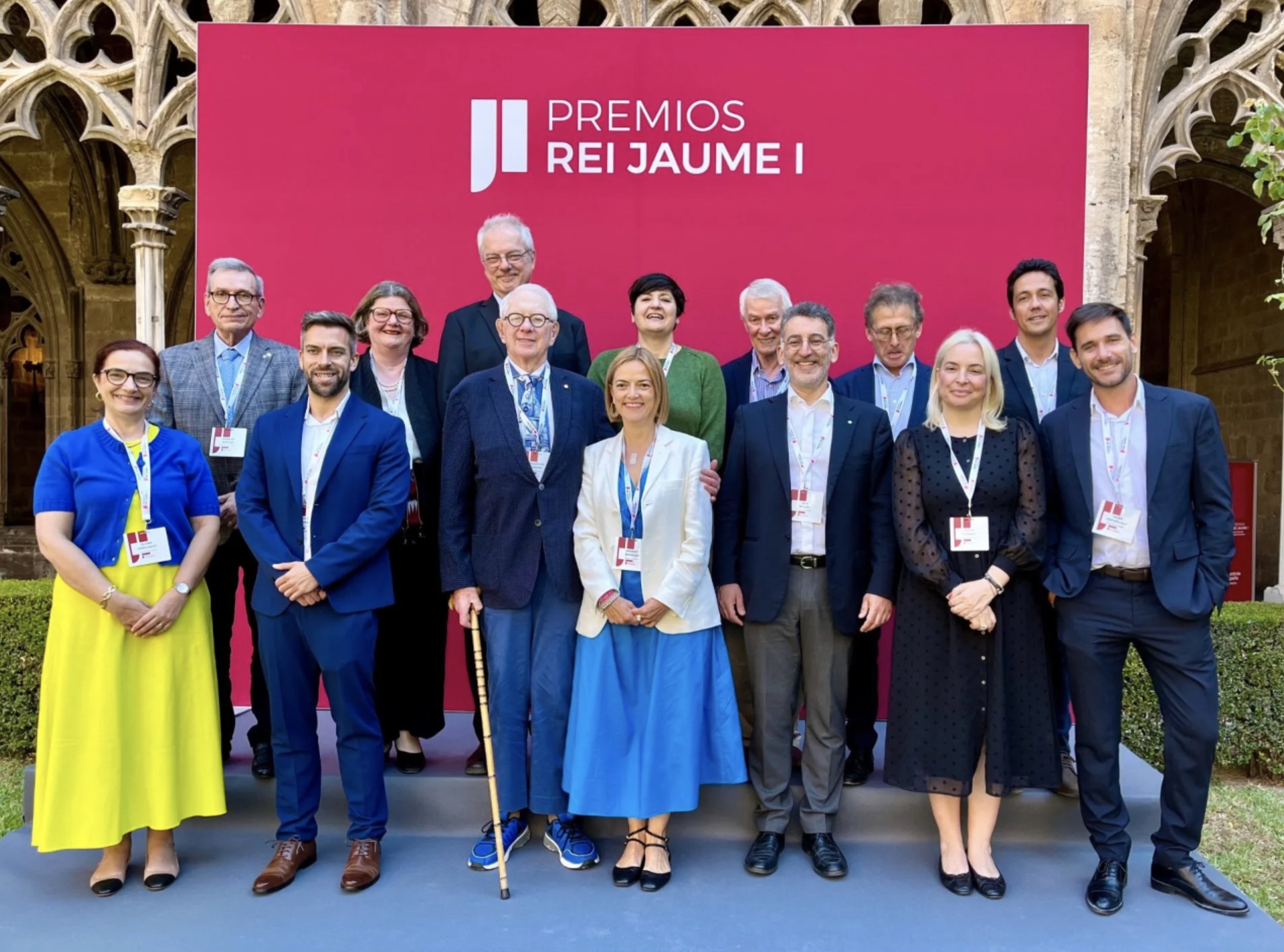The researcher of the Institute of Molecular Science (ICMol), located in the scientific-academic area of the Science Park of the University of Valencia, has been part of the jury along with four Nobel Prize winners in the category of New Technologies, in which the biologist Luis Serrano has been recognized
The distinguished researcher of the Gen-T Plan José Jaime Baldoví, director of the 2D Smart Materials group at the Institute for Molecular Science (ICMol), located at the Science Park of the University of Valencia (PCUV), has been part of the jury of the prestigious Rei Jaume I awards in the category of New Technologies in its 36th edition, whose meeting took place in Valencia on June 3 and 4.
Together with Baldoví, four Nobel Prize winners participated as members of the jury, Professors Sheldon Lee Glashow, president of the Jury (Nobel Prize in Physics in 1979 for his contributions to the theory of the unified electromagnetic and weak interaction between elementary particles), Bernard Feringa (Nobel Prize in Chemistry in 2016 for the design and synthesis of molecular machines), Morten Meldal (Nobel Prize in Chemistry in 2022 for the genesis and development of click chemistry) and Richard Roberts (Nobel Prize in Medicine 1993 for the discovery of split genes). The jury also included Elvira Fortunato, who was Minister of Science, Technology and Education of the Portuguese Government until last March, as well as internationally renowned scientists such as Sonia Contera, Rodrigo Martins, Petra Rudolf, José M.ª Carmena, Rosario González-Férez, Lapo Bogani, Nuria Oliver and Javier Santaolalla.
"Being part of the jury is an honor and a recognition of my professional career. I was able to interact with world-renowned scientists and entrepreneurs, including twenty Nobel Laureates. I was delighted to be able to contrast critical judgments with them and we were all impressed by the high quality of the nominations. I have been able to share two whole days with so many people I admire, as well as our great passion for science, in places full of identity such as those offered by Valencia. It has been an unforgettable experience, very rewarding, to meet first hand people who are references for my daily activity. I have been able to learn from their experience, exchange ideas and share curiosity about the world around us", explains Baldoví.
 PHOTOS: Rey Jaime I Awards Foundation.
PHOTOS: Rey Jaime I Awards Foundation.
New Technologies Award, a cornerstone of AI in biomedicine
The winner of this year's award was ICREA Professor Luis Serrano, who received unanimous votes from the entire jury. Serrano connects fundamental research and technological development with his contributions in systems biology, synthetic biology and protein design, achieving a great impact on society.
The researcher has been one of the first scientists to use artificial intelligence (AI) by creating the FoldX program for predicting protein structures, used by the international community and which has become one of the cornerstones of AI in biomedical research and innovation.
35 years with knowledge and entrepreneurship
The Rei Jaume I Awards were established in 1989 with the aim of promoting research in Spain, recognizing outstanding scientists and entrepreneurs who have carried out their work in the country. Specifically, they are distributed in seven categories that are evaluated independently: Basic Research, Biomedical Research, Clinical Research and Public Health, Environmental Protection, New Technologies, Economics and Entrepreneurship.
Each award includes a gold medal, a diploma and 100,000 euros, with the requirement to allocate part of this sum to research or entrepreneurship in Spain. The juries of the Rei Jaime I Awards are composed of around 100 renowned personalities in the fields of science and business worldwide. In this edition, twenty Nobel laureates have participated and, since its inception, more than 70 Nobel laureates have been part of the juries.
Learn more about José Jaime Baldoví's career in the interview section EuroPark, the initiative of dissemination of European projects developed at the University of Valencia Science Park


